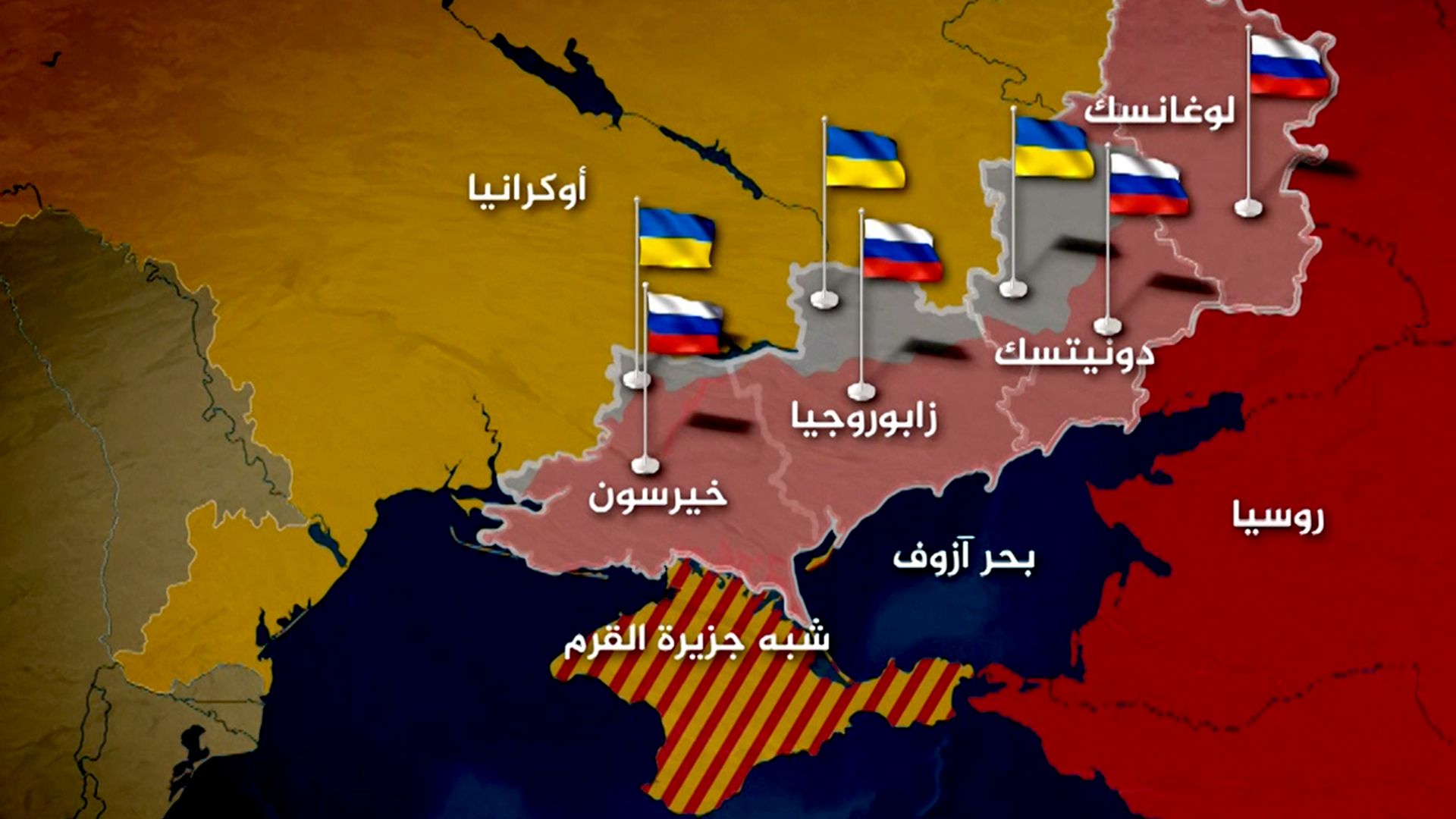Russia may, by September 30, annex the Ukrainian regions of Donbass, Kherson and Zaporozhye, which are witnessing referendums, which Kyiv and its Western allies describe as illegitimate, the TASS news agency said, quoting a Russian source, today, Saturday.
The Russian agency added that the State Duma may study on the 29th of this month draft laws to include the four Ukrainian regions controlled in whole or in part by Russia, namely Lugansk and Donetsk in the Donbas region (east), Kherson (south), and Zaporizhia (southeast).
And Kremlin spokesman Dmitry Peskov announced yesterday that the measure to annex these areas could be swift.
While the referendum operations continue for the second day in the Ukrainian regions under Russian forces, Russian Foreign Minister Sergey Lavrov said at a press conference in New York that these referendums are conducted according to the rules of local governments, and that Moscow will absolutely respect their results.
While Moscow said the referendums were in accordance with international law, Ukraine and its allies condemned the move, stressing that they would not recognize its results, and Washington threatened to impose more sanctions on Russia.
Today, the Ukrainian mission to the United Nations called for a meeting of the Security Council to discuss referendums organized by the pro-Russian authorities.
partial results
Referendums taking place in Donbass, Kherson and Zaporozhye will continue for 4 days, ending next Tuesday. Voting takes place amid intense battles on the borders of the four regions and within their borders.
And the pro-Moscow Lugansk authorities announced that the turnout in the referendum during the first day amounted to 22%, while the voter turnout in neighboring Donetsk exceeded 23%, according to the pro-Russian authorities.
In the south, the pro-Russian Kherson authorities also said that the voter turnout amounted to more than 15% in the whole province, while the Zaporozhye authorities announced that the turnout was about 20%.
The leader of the separatists in Donetsk said they did not care whether the West would recognize the results of the referendum or not.
The annexation of the four regions to Russia would represent a significant escalation in the conflict, as Moscow would consider any military move targeting these regions after its secession from Ukraine as an attack on its territory.
Dmitry Medvedev, deputy head of the National Security Council, had indicated a few days ago clearly that Moscow may resort to nuclear weapons to defend what it considers its territory.
Change of military leadership
On the other hand, the Russian Ministry of Defense announced today the dismissal of General Dmitry Bulgakov, the Russian Deputy Defense Minister for Logistics, and his transfer to another post.
The ministry said - in a statement - that Major General Mikhail Mizintsev was appointed to succeed Bulgakov.
This change comes after the retreat of Russian forces in the Kharkiv province (northeast) and also in Lidonetsk.
The New York Times quoted US officials as saying that Russian President Vladimir Putin had become more involved in the war strategy and had rejected the demands of his field commanders to withdraw from the city of Kherson - which was controlled by Russian forces at the beginning of the war that erupted on February 24 last - which frustrated the spirit. The morale of the Russian forces, according to her.
US officials said that Putin's intervention created tension despite his acceptance of the recommendations of military leaders such as the mobilization of civilians, noting that the Russian president eased his control over military planning after the concerns of Russian officers were validated and allowed senior generals to draw up a new strategy that focused on intense artillery bombardment.
The course of the battles
On the ground, the Russian Defense Ministry announced today that more than 340 Ukrainian soldiers were killed in shelling on Ukrainian sites in Kharkiv (northeast), Donetsk (east), Mykolaiv and Kherson (south).
The ministry said that the Russian Air Force shot down a Ukrainian "Mig-29" in the Dnipro province (central).
On the other hand, the spokesman for the Southern Operations Command of the Ukrainian Army, Vladislav Nazarov, said that the Ukrainian forces had shot down a Russian Mi-8 helicopter and a Sukhoi-25 fighter plane in Mykolaiv.
The same spokesman also said that drones dropped toxic substances believed to be a "chloropicrin" bomb on the fighting positions of the Ukrainian army.
In Donetsk, which is witnessing counter-attacks by the Ukrainian forces, Al-Jazeera correspondent reported the renewed Russian bombing of the city of Bakhmut and its surroundings, east of the province, while the Ukrainian army said that it had thwarted a Russian attack on the vicinity of Bakhmut.
In another development, British military intelligence said that Russia attacked a dam on the Seversky Donets River (northeast) with a short-range ballistic missile, for the second time in more than a week, with the aim of destroying Ukrainian military crossing points.
The British intelligence statement said that the Russian attacks were not likely to impede the offensive operations of the Ukrainian forces, which said they were making progress along the areas adjacent to the two main rivers in the country.

